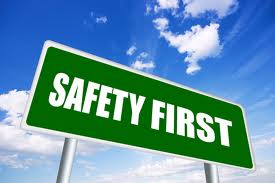Gadget Safety

Tools and ideas to transform education. Sign up below.
You are now subscribed
Your newsletter sign-up was successful
Nowadays kids take rather more than packed lunches and books to school with them. From mobile phones and blu ray devices to Toshiba laptops and USB drives, they’re fully wired up and the kit they carry about with them on a daily basis can amount to a tidy little sum.
The problem in the past used to be kids misplacing their trainers or homework but now parents rightly worry that their accident-prone child is going to accidentally offload their smartphone or portable DVD playerrather than just a pen or ruler as of yore.
Nonetheless, there are a few sensible steps parents can take when choosing technology items which kids these days seemingly can’t manage without.
Laptops
With laptops, for instance, you can try to get them one with a solid-state drive which has no moving parts and can put up with all sorts of rough treatment without crashing and go for a spill-proof keyboard wherever possible too. Smaller screens are less prone to breakage than larger ones and a netbook might actually be a better idea than a laptop in that respect.
You should make sure that it has all the antivirus and anti-malware programs loaded as well because kids typically frequent sites that are dubious to say the least and which are adept at spreading infections. Kids also need to be taught about the dangers of opening email attachments and links and of visiting suspicious-looking websites.
You can get a proper laptop bag for the machine to carry it separately from books, pens and other school-related equipment to reduce the chance of damage. If parents and kids share the same machine, password protection is also a must; with kids the fine line between curiosity and downright invasion of privacy is often blurred.
Tools and ideas to transform education. Sign up below.
Mobile phones
If mobile phones have their own cases and preferably be attached to a belt rather than shoved into a back pocket, that would help too. We may try installing specialist software so that should the device be lost or stolen it can easily be tracked.
As with all such devices, kids need to be warned about the risks of web surfing and even of chatting online with friends. With cyber bullying, malware and phishing rife in the online world, using a mobile phone can be as risky as using a regular PC and in fact more so because of its sheer convenience.
Encrypted USB drives
You can pay a small amount extra to have a computer’s USB drives encrypted, to protect things like school assignments that could be lifted by someone else and passed off as their own effort. A password will protect any data on the machine so that only the rightful owner can access it.
Best practice when using technology can result in valuable lifelong habits, such as keeping a close eye on all devices when out and about and making regular backups of all important data. Many of us fail the test here, so it’s doubly important that our kids get it right.
cross-posted at http://ozgekaraoglu.edublogs.org
Özge Karaoğlu is an English teacher and educational consultant in teaching young learners and teaching with web-based technologies. She is the author of Minigon ELT book series, which aims to teach English to young learners through stories. Read more of her ideas about teaching English through technology and Web-based tools at http://ozgekaraoglu.edublogs.org.
